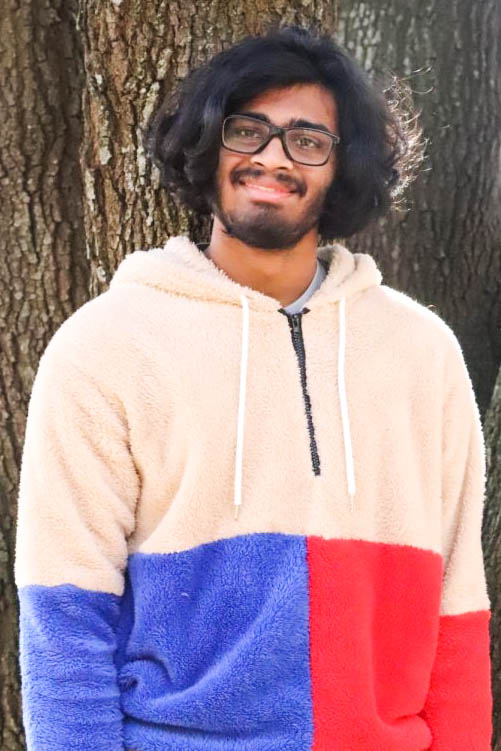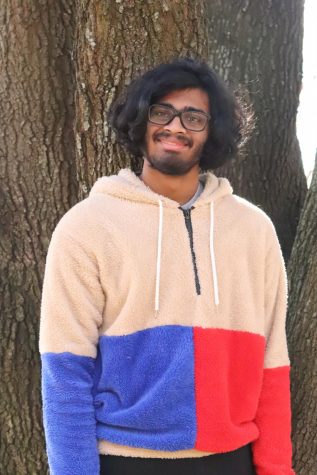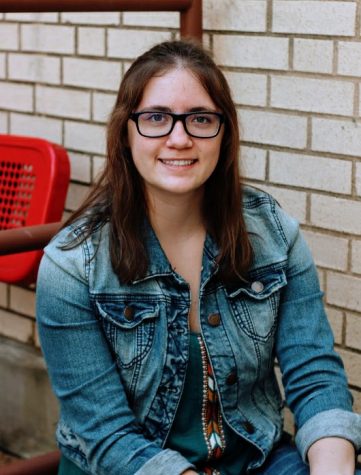
Stepping into a Hindu class for the first time, I immediately felt out of place. Around 60 kids sat on mats on the floor, the guru waiting for everyone to settle down. For the next half hour, we chanted prayers, quietly scolded by the parents seated around us if we went silent or whispered to the other kids. Afterwards, teachers split us up into rooms for hour-long studies. Even at 5, the weekly class felt more like a classroom than a place of worship or belonging.
Hinduism is a formless religion; it can be practiced differently depending on personal preferences, and is widely regarded as a path of faith decided by oneself. Knowing this as a kid, being fed information instead of getting to choose how to worship was frustrating, but the class was the only place I could study the hundreds of deities and stories. Hinduism was never forced on me, but it was the only spiritual avenue I knew for six years.
I left the Hindu class at 11, following years of arguing with my parents. I wanted to stay Hindu, but without formulaic assignments and lectures. I resolved to pray on my own time, my own way. For a time, it felt like how belief should’ve been, but thoughts intruded. Uncertainties flooded through holes made by the structure of that Hindu school, and I began to doubt whether I truly believed in what I and those around me claimed I did.
Going through a slight rebellious phase at the time, I finally decided I didn’t believe in the deities I had spent years worshipping. Looking back, I was, at best, unsure, but the arrogance of a middle schooler won, and I labeled myself an atheist.
Of course, my beliefs didn’t line up at all with the definition of atheism, but, having cast off a label I carried my entire life, I felt like I was on top of the world. I still visited the temple on holy days, prayed at the altar at home, and lived a Hindu lifestyle, but, secretly, I claimed to not believe in any of it. I felt like I finally believed in something of my own volition.
Throughout middle school, I began to look into religion further, and discovered the actual meaning of atheism: the concrete disbelief in the existence of God or gods. I clung to the label, insisting it was true, but inevitably gave it up, realizing I’d eventually have to accept I wasn’t absolutely certain in my beliefs.
Searching for a replacement term, I happened upon agnosticism, the belief one will never know the truth of the existence of God and gods. It seemed like common sense at the time; how could one know definitively the existence of something so beyond us? Deciding to spend less time worrying about the topic, I resigned myself to a lifetime of never knowing the truth of the divine.
During quarantine, I started looking into philosophy as a replacement for spiritualism, and began to ponder the most foundational question in philosophy: the meaning of life. I spent months down that rabbit hole, sifting through countless answers and ideologies. Finally, one quiet night, I sat and thought about my beliefs in their entirety, and asked myself, “What term could describe all that?” There was no answer.
Ever since I’d cast off the beliefs I’d held since childhood, I’d been searching for something to classify myself as, but the truth was I didn’t need anything. I can live life without worrying about religion, or whether or not anything has meaning. Of course, these terms may be necessary and simple for others, but I had to learn that, for me, they were unnecessary, and only a burden. These beliefs are perfectly valid, but I had to stop drowning myself in them to live.
Now, I haven’t thought about what to classify my thoughts as in months. I’m sure there’s some term out there to explain it, and it could even be one I’ve used in the past. I could be agnostic, existentialist, or maybe, somewhere in my soul, I’m still a Hindu, but it doesn’t matter to me anymore. Living life in the moment, for the sake of experiencing it, is meaning enough for me.









